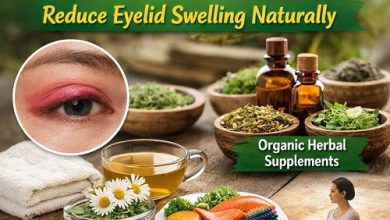12 of the Best Drinks to Support Healthy Aging, According to Nutritionists

Aging is a natural process that brings wisdom, life experiences, and new perspectives. Yet, for many people, maintaining physical health, energy, and vitality is equally important as the years go by. While genetics and lifestyle play big roles in how we age, nutrition—particularly hydration and the beverages we consume—can significantly influence longevity, skin health, brain function, and disease prevention.
The right drinks don’t just quench thirst; they supply antioxidants, vitamins, minerals, and hydration to support heart health, protect bones, enhance digestion, and keep cognitive function sharp. To help you sip your way to healthy aging, we’ve rounded up 12 of the best drinks nutritionists recommend for promoting well-being in midlife and beyond.
1. Water: The Foundation of Healthy Aging
When it comes to aging well, nothing beats plain, fresh water. Hydration impacts nearly every aspect of health—digestion, circulation, skin elasticity, and even joint lubrication. As we age, the body’s natural thirst cues diminish, putting older adults at higher risk of dehydration. Chronic dehydration can lead to fatigue, headaches, constipation, and even impaired cognitive performance.
Nutritionist insight: Many dietitians recommend older adults aim for at least 6–8 cups of water daily, though individual needs vary depending on activity level and climate. Adding slices of cucumber, lemon, or berries can make water more appealing while adding a nutrient boost.
2. Green Tea: Antioxidant Powerhouse
Green tea is a staple in healthy aging discussions, and for good reason. It is rich in catechins, particularly epigallocatechin gallate (EGCG), which fights oxidative stress—a major contributor to aging and chronic disease. Studies suggest green tea may lower the risk of heart disease, improve brain function, and even support weight management.
Why it helps:
- Protects cells from free radical damage
- May enhance metabolic health
- Supports memory and reduces cognitive decline
Pro tip: Drink 2–3 cups per day. If you’re caffeine-sensitive, opt for decaffeinated versions that retain most antioxidants.
3. Black Coffee: Brain and Heart Benefits
Coffee often gets mixed press, but in moderation, it can be a powerful ally in healthy aging. Black coffee is loaded with polyphenols and antioxidants that protect brain cells and reduce inflammation. Research links regular coffee consumption with a lower risk of Parkinson’s disease, Alzheimer’s disease, and type 2 diabetes.
Nutritionist recommendation: Limit intake to 2–4 cups per day without excessive sugar or cream. Switching to black or lightly sweetened versions maximizes the benefits without the added calories.
4. Herbal Teas: Gentle Wellness Support
Chamomile, rooibos, hibiscus, and peppermint teas not only provide hydration but also target specific aspects of aging.
- Chamomile: calming and supports better sleep, a key factor in longevity
- Hibiscus: known to lower blood pressure naturally
- Peppermint: aids digestion and reduces bloating
- Rooibos: caffeine-free and rich in antioxidants
Why it matters: Good sleep, healthy digestion, and balanced blood pressure are cornerstones of healthy aging. Herbal teas offer a caffeine-free way to support these systems.
5. Red Wine (in Moderation)
For those who enjoy alcohol, red wine—when consumed in moderation—has long been associated with longevity, particularly in Mediterranean cultures. Its key compound, resveratrol, supports heart health, improves circulation, and has anti-inflammatory properties.
Important caveat: Excessive alcohol accelerates aging, harms the liver, and raises cancer risks. Nutritionists recommend no more than one 5-ounce glass per day for women and two for men. For those who avoid alcohol, grape juice offers some of the same polyphenol benefits.
6. Low-Fat Milk or Fortified Plant-Based Milk
Calcium and vitamin D are critical for bone health as we age, reducing the risk of osteoporosis sysmptoms,causes. Low-fat cow’s milk or fortified alternatives like almond, soy, or oat milk provide these nutrients. Plant-based versions also supply additional compounds such as isoflavones (in soy milk), which support hormonal balance in postmenopausal women.
Nutritionist tip: Look for plant milks fortified with calcium, vitamin D, and vitamin B12 supplements to mimic the nutritional profile of dairy.
7. Beet Juice: Circulation Booster
Beet juice is gaining recognition for its high nitrate content, which the body converts into nitric oxide—a compound that improves blood flow and lowers blood pressure. Better circulation means more oxygen delivery to muscles and the brain, supporting both physical endurance and cognitive function.
Evidence-based benefit: Studies suggest beet juice may enhance exercise performance in older adults and reduce cardiovascular strain.
8. Pomegranate Juice: Anti-Inflammatory Support
Pomegranates are bursting with antioxidants like punicalagins, which combat inflammation—a key driver of aging and chronic diseases such as arthritis, heart disease, and cancer. Pomegranate juice also supports urinary tract health and may improve memory.
Serving size: Stick to small amounts (4–6 ounces) since pomegranate juice is naturally high in sugar. Pairing it with water can help dilute sweetness while keeping benefits intact.
9. Bone Broth: Joint and Skin Support
Bone broth, simmered from animal bones and connective tissue, is rich in collagen, gelatin, amino acids, and minerals. Collagen supports skin elasticity, while gelatin promotes joint health. Some research suggests collagen intake may reduce wrinkles and support cartilage regeneration.
Nutritionist insight: While bone broth alone won’t erase wrinkles, it can complement a nutrient-dense diet to support skin and joint longevity. It’s also hydrating and easy to digest.
10. Golden Milk (Turmeric Latte)
Golden milk combines turmeric, milk (or plant-based alternatives), and spices like cinnamon and ginger. The star ingredient, curcumin, is a potent anti-inflammatory and antioxidant compound. Chronic inflammation is linked to arthritis, heart disease, and accelerated aging, making turmeric a valuable addition to the diet.
How it helps:
- Reduces inflammation in joints
- Supports brain health
- Enhances immunity
Pro tip: Pair turmeric with black pepper for better absorption of curcumin.
11. Fresh Vegetable Juices
Carrot, kale, spinach, and celery juices pack a nutrient punch, offering vitamins A, C, and K along with magnesium, potassium, and phytonutrients. These nutrients support immune function, skin repair, and eye health—all of which are vital for healthy aging.
Nutritionist recommendation: Choose cold-pressed juices without added sugars, and include fiber-rich whole vegetables in your diet to complement juicing.
12. Smoothies with Protein and Fiber
Blended smoothies that incorporate fruits, vegetables, protein (like Greek yogurt, protein powder, or nut butter), and fiber (chia seeds, flaxseeds, oats) make excellent nutrient-dense beverages. They support muscle mass preservation—a key factor in maintaining mobility and independence in older age.
Why it matters: After age 40, muscle loss (sarcopenia) naturally accelerates. Consuming adequate protein, alongside strength training, helps counteract this decline. Smoothies make protein intake easy and enjoyable.
Practical Tips for Choosing Drinks That Promote Healthy Aging
- Prioritize hydration first. No drink replaces the importance of water.
- Watch the sugar content. Even healthy juices can be high in natural sugars; dilute when possible.
- Balance caffeine intake. Coffee and tea offer benefits but can disrupt sleep or cause dehydration if consumed in excess.
- Go for nutrient density. Choose beverages that provide vitamins, minerals, and antioxidants rather than empty calories.
- Moderation is key. Alcohol and high-sugar drinks can undo many health benefits if over-consumed.
Conclusion
Aging is inevitable, but how we age is influenced by the choices we make every day—including what we drink. From water and green tea to golden milk and pomegranate juice, the right beverages can hydrate, nourish, and protect the body against age-related decline. By focusing on antioxidant-rich, anti-inflammatory, and nutrient-dense drinks, you can support your bones, brain, heart, and skin as the years go by.
The takeaway? Aging well isn’t about quick fixes or miracle cures—it’s about consistent habits. Sip smart, and your future self will thank you.




